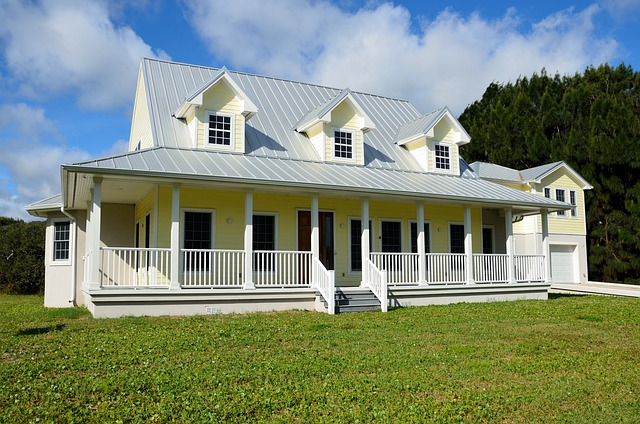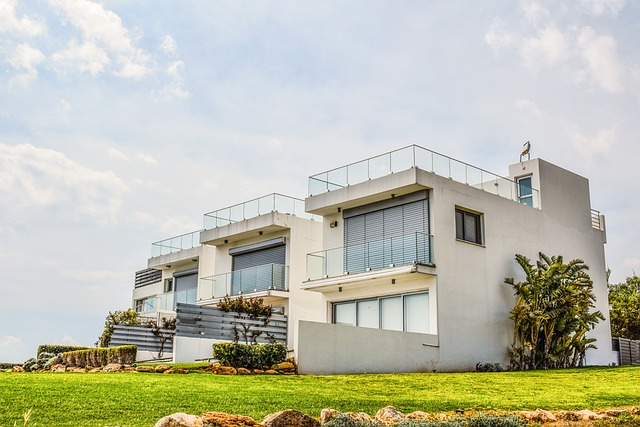Singapore's Executive Condominium (EC) market presents a dynamic investment opportunity influenced by government housing policies, market supply and demand, economic conditions, and geographic location. ECs cater to middle-income earners with a unique occupancy requirement before they can be resold on the open market, differentiating them from private condos. Factors like government grants, the timing of new unit releases, and market sentiment further shape EC pricing. Location, particularly in mature estates or near MRT stations, and proximity to essential amenities significantly impact an EC's value. Historical trends in EC prices, influenced by economic indicators and property market sentiment, suggest potential for growth mirroring private condominiums. Investors must consider these factors along with future policies, demographic shifts, and macroeconomic influences when assessing the investment appeal of ECs. A strategic approach requires analyzing current EC prices, historical trends, and staying informed on policy updates and market shifts to capitalize on the market's growth potential and profitability, keeping a close eye on the Executive Condo Price index for guidance.
Exploring the intricate landscape of Singapore’s property market, investors find a distinct segment that warrants attention: Executive Condos (ECs). This article delves into the factors that influence EC investment opportunities and their price trends. We will navigate through historical data and expert projections to uncover insights on maximizing potential in this niche market. From understanding the dynamics of EC prices to strategic considerations for capitalizing on market opportunities, our exploration promises to equip investors with a comprehensive view of the EC investment landscape in Singapore.
- Understanding the Dynamics of Executive Condo (EC) Prices in Singapore
- Key Factors Influencing EC Investment Value and Growth Potential
- Analyzing Past Trends and Future Projections for EC Property Investments
- Strategic Considerations for Capitalizing on EC Market Opportunities
Understanding the Dynamics of Executive Condo (EC) Prices in Singapore

In Singapore, the Executive Condominium (EC) market presents a unique segment for property investment, with its own set of dynamics influencing executive condo prices. Prospective investors and homeowners should understand that EC prices are influenced by a confluence of factors including government policies, supply and demand trends, as well as geographical location. Unlike private condominiums, ECs are a hybrid of HDB (Housing & Development Board) flats and private condos, catering to the middle-income group in Singapore. This distinction impacts their pricing, as they enjoy a longer 10-year minimum occupation period before they can be sold on the open market, which can affect their appeal and valuation relative to private condos. Market sentiment, economic indicators, and the overall state of the real estate market further shape EC prices. Investors should monitor these factors closely, as changes in any of them could lead to significant fluctuations in pricing.
The Singaporean government’s housing policies also play a pivotal role in the price dynamics of ECs. Initiatives such as the Extended CPF Housing Grant (EHG) or the Proximity Housing Grant (PHG) are designed to support eligible applicants, potentially influencing demand and, consequently, executive condo prices. Additionally, the rate at which new units are released into the market also affects pricing. A controlled release, as part of a larger strategy to maintain property values within certain districts or regions, can lead to higher prices due to limited supply. Conversely, an oversupply could lead to a softening of prices if demand does not keep pace. Therefore, investors looking at EC investment opportunities in Singapore must stay informed about policy changes and market trends to navigate the pricing landscape effectively. Keeping abreast of these factors is crucial for anyone interested in capitalizing on the Executive Condo market’s potential for growth and profitability.
Key Factors Influencing EC Investment Value and Growth Potential

The value and growth potential of an Executive Condo (EC) investment in Singapore are influenced by a multitude of factors, each playing a pivotal role in determining the long-term returns on investment. A key factor is the location of the EC, as those situated in established mature estates or near future MRT stations tend to appreciate over time due to their desirability and convenience. Proximity to amenities such as shopping centers, schools, and parks can also enhance an EC’s appeal, thus impacting its price and resale value. Additionally, the age of the EC and its condition play significant roles; older units may require renovation or upgrading to meet modern standards and attract potential buyers.
Market trends and economic indicators are another set of factors that influence EC investment value. Economic stability and growth in Singapore can lead to an increase in demand for housing, including ECs, which are a hybrid between public and private housing. Government policies and grants also affect investment decisions; they can make purchasing an EC more attractive by offering financing advantages or subsidies. Moreover, the supply of new ECs and the conditions of the existing market, such as oversupply or high demand, can influence prices. Investors should consider these factors when assessing the potential for growth and the long-term value of Executive Condo investments in Singapore’s dynamic property market.
Analyzing Past Trends and Future Projections for EC Property Investments

In recent years, the Executive Condo (EC) market in Singapore has seen a dynamic evolution shaped by both past trends and future projections. Prospective investors looking at EC property investments can benefit from analyzing historical price patterns of these properties. The prices of ECs have traditionally been linked to broader economic indicators, such as interest rates set by the Monetary Authority of Singapore, and the overall sentiment of the property market. By examining the trajectory of EC prices over past cycles, investors can discern trends that may inform their investment decisions. For instance, during periods of economic expansion, EC prices have often appreciated in line with private condominiums, reflecting the aspirational value they hold for middle-income families eligible to purchase them.
Looking ahead, future projections for EC property investments are guided by government policies, demographic shifts, and macroeconomic factors. The Singaporean government’s housing policies, such as the Seventh Report of the Committee on the MRT & LRT Systems, influence the supply and affordability of EC units. Additionally, as the population grows and the middle-income group expands, the demand for ECs is expected to remain robust. Investors should also consider the impact of global economic conditions, which can influence investor sentiment and interest rates, thereby affecting the Executive Condo Price index. Understanding these factors in conjunction with historical data can provide a comprehensive view of the potential opportunities and risks associated with EC property investments.
Strategic Considerations for Capitalizing on EC Market Opportunities

When capitalizing on investment opportunities within the Executive Condo (EC) market, strategic considerations are paramount to navigating the landscape effectively. Prospective investors should first assess the current EC prices, as they fluctuate based on market demand, economic conditions, and the location of these properties. An analysis of past price trends can provide valuable insights into potential future movements, enabling informed decision-making. It’s crucial to evaluate not just the immediate cost but also the long-term value appreciation of ECs, which are a hybrid of public and private housing in Singapore, catering to the middle-income segment.
Furthermore, investors should consider the timing of their investment, as EC prices can be influenced by broader economic factors such as interest rates, inflation, and government policies affecting housing supply and demand. Additionally, understanding the tenure structure, eligibility criteria, and subsidy schemes available for ECs is essential, as these factors can impact both the appeal and resale potential of these properties. By carefully considering these elements and staying attuned to market dynamics, investors can identify lucrative opportunities within the EC market that align with their investment goals and risk appetite.
EC investments in Singapore present a dynamic landscape for discerning investors. With a thorough understanding of how various factors influence EC prices, coupled with insights into past and future trends, potential investors can strategically navigate this market to maximize their returns. The nuanced relationship between supply, demand, and government policies underscores the importance of a well-informed approach when considering an investment in Executive Condos. As such, prospective investors should weigh these elements carefully to harness the growth potential inherent in this segment of the real estate market. By keeping abreast of the evolving dynamics and leveraging the unique opportunities that ECs offer, savvy investors stand to benefit from the continued vitality of this sector within Singapore’s property landscape.
